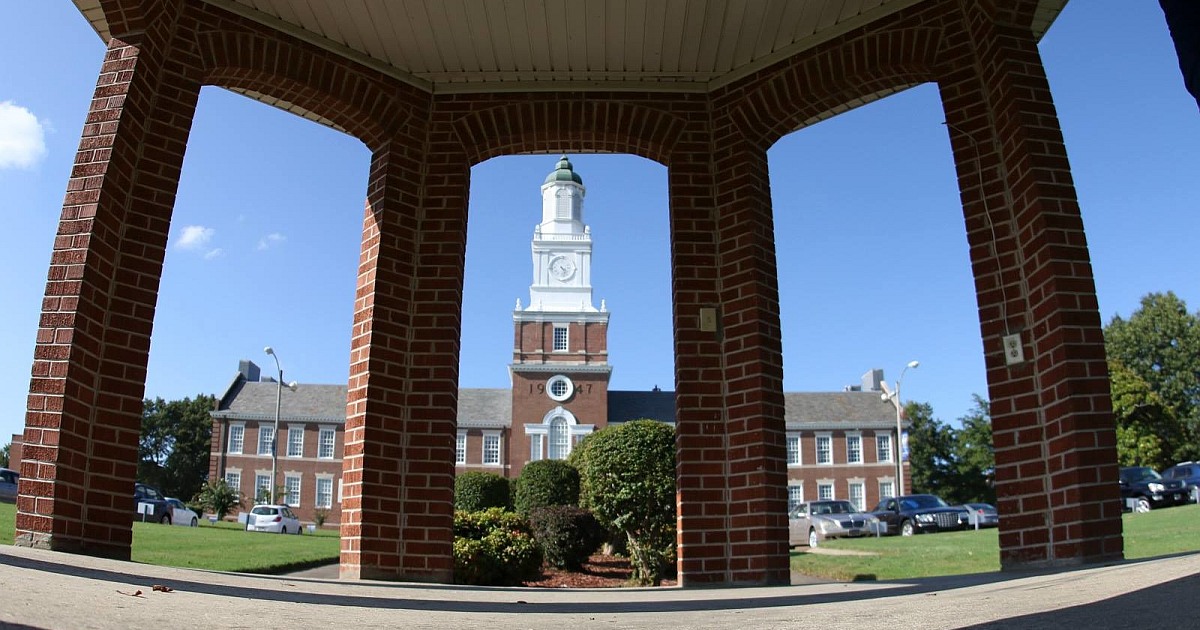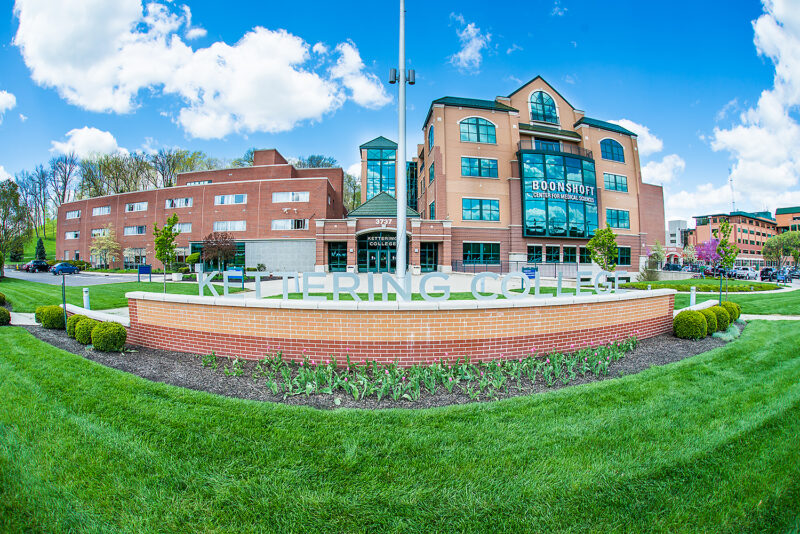Community college can be an excellent way to start your college education. However, at some point you may want to transfer to a four-year school. Here is a guide on how to transfer to Harvard from a community college.
The first step is to make sure you meet Harvard’s admission requirements. In order to be considered for admission, you must have a high school diploma or a General Educational Development (GED) certificate. You must also have excellent grades and SAT or ACT scores.
The next step is to make sure you are eligible to transfer. In order to be eligible, you must have completed at least two years of full-time college coursework at a regionally accredited institution. You must also have a GPA of 3.0 or higher.
The final step is to submit your transfer application. The application includes the application for admission, the Common Application, and the Harvard supplement. You must also submit your high school transcript and your college transcript.
If you are accepted to Harvard, you will need to notify your current institution and have them send your transcript to Harvard. You will also need to complete Harvard’s transfer orientation.
How hard is it to transfer to Harvard from community college?
Community college can be a great way to get started on your college education. But what if you want to transfer to a prestigious school like Harvard?
Transferring to a four-year school from a community college can be a challenge, but it’s definitely not impossible. Here are a few things you need to know:
First, you’ll need to make sure that you meet the school’s admissions requirements. Most schools require a minimum GPA and SAT or ACT scores.
You’ll also need to make sure that you take the right classes at community college. Most schools require that you complete a certain number of credits in certain subject areas.
Finally, you’ll need to make a strong case for why you should be admitted to the school. You’ll need to highlight your academic achievements and any other noteworthy accomplishments.
If you’re willing to put in the hard work, you can definitely transfer to a prestigious school like Harvard from a community college.
Is it hard to transfer from community college to an Ivy League?
When it comes to transferring from a community college to an Ivy League school, there is no easy answer. Each situation is unique, and the decision depends on a variety of factors. However, there are a few things to keep in mind when making the decision.
The first thing to consider is your GPA. Most Ivy League schools require a GPA of 3.5 or higher to be considered for admission. If your GPA is not quite up to par, you may want to consider other options.
Another consideration is your SAT or ACT score. Most Ivy League schools require scores in the mid- to high-600s for admission. If your scores are not quite there, you may want to focus on boosting your score before applying.
Finally, you will want to consider the cost of attendance at each school. Ivy League schools are notoriously expensive, and most students require substantial financial aid to attend. If you do not have the financial resources to attend an Ivy League school, you may want to consider other options.
In the end, the decision of whether to transfer to an Ivy League school or not is up to you. But be sure to weigh all of your options before making a decision.
Do Ivy Leagues accept community college credits?
The answer to this question is a resounding “it depends.” Each Ivy League school has its own policies when it comes to accepting credits from community colleges. Some schools accept them, while others do not.
One reason that Ivy League schools might be hesitant to accept community college credits is that the quality of instruction at community colleges can vary a great deal. Another reason is that credits from community colleges might not be equivalent to credits from four-year universities.
That being said, some Ivy League schools are more willing to accept credits from community colleges than others. For example, Brown University accepts credits from community colleges, while Princeton University does not.
If you are interested in transferring to an Ivy League school and you have credits from a community college, it is important to research the specific policies of each school you are interested in. You should also speak to an admissions counselor at the school to find out whether your credits will be accepted.
Can I transfer from community college to an Ivy League?
Yes, you can transfer from a community college to an Ivy League school. However, the process can be difficult and competitive.
In order to be eligible to transfer to an Ivy League school, you must first meet the school’s requirements for admission. This typically includes a high GPA and standardized test scores. Additionally, you will need to submit a competitive application, which may include an essay and letters of recommendation.
If you are accepted to an Ivy League school, you will likely need to pay tuition and fees that are significantly higher than what you would pay at a community college. However, many Ivy League schools offer scholarships and financial aid to help offset the cost.
Ultimately, transferring to an Ivy League school is a challenging but rewarding process. If you are motivated and have the grades and test scores to back it up, it is definitely worth considering.
What GPA do I need to transfer to Harvard?
If you’re wondering what GPA you need to transfer to Harvard, the answer is: it depends.
First of all, you’ll need to make sure you meet Harvard’s admissions requirements. In addition to a high GPA, you’ll need to have strong SAT or ACT scores, as well as a stellar application.
That said, Harvard typically accepts students with GPAs of 3.8 or higher. So if you’re aiming to transfer to Harvard, you’ll need to make sure you’re doing your best in school and taking challenging classes.
If you’re not quite there yet, don’t worry. You can still improve your chances of getting into Harvard by doing things like completing an honors or AP program, or by participating in extracurricular activities.
Ultimately, the best way to know what GPA you need to transfer to Harvard is to consult with an admissions counselor. They can help you determine which classes you need to take and what else you can do to improve your chances of getting into one of the country’s top colleges.
Does Yale accept community college transfers?
Yes, Yale accepts community college transfers. In fact, Yale has a very generous transfer policy and accepts a high percentage of community college transfers.
To be eligible for transfer to Yale, you must have completed an associate’s degree or completed at least 60 semester hours of college coursework. You must also have a grade point average of at least 3.0.
If you meet these requirements, you will be considered for admission to Yale. However, keep in mind that Yale is a very selective school and admission is not guaranteed.
If you are interested in transferring to Yale, the best thing to do is to contact the admissions office and speak with a representative. The representative can tell you what specific courses you need to take to be eligible for transfer, and can help you determine if Yale is the right school for you.
Does Harvard accept community college transfers?
There is no one answer to the question of whether or not Harvard accepts community college transfers. Each year, the admissions office at Harvard College considers a number of community college transfer students for admission. However, the number of community college transfers who are accepted each year varies and is based on a number of factors, including the number of spaces available in the freshman class and the qualifications of the applicants.
Generally, students who have attended a community college and then applied to Harvard have been successful in gaining admission. However, it is important to note that the admissions process at Harvard is highly competitive and that not all community college transfers are accepted. In order to increase your chances of being accepted, it is important to have a strong academic record and to submit a competitive application.
If you are interested in transferring to Harvard College, it is important to start by researching the admissions process and requirements. You can find more information on the Harvard College website. Additionally, it is helpful to reach out to an admissions counselor at Harvard for more specific advice.
Is it easier to get into Harvard as a transfer?
There is no one definitive answer to the question of whether or not it is easier to get into Harvard as a transfer student. However, the consensus seems to be that, while it is not impossible to get into Harvard as a transfer, the process is generally more difficult than for students who apply as freshmen.
There are a number of reasons why this might be the case. First, there are a limited number of spaces available in Harvard’s freshman class, and so competition for admission is fierce. In contrast, there are more spaces available for transfers, so the competition is not quite as stiff. Secondly, Harvard tends to give preference to applicants who have attended college for at least one year, and since most transfers have already completed at least one year of college, they are at an advantage.
That said, there are a number of things you can do to improve your chances of being accepted as a transfer student. First, make sure that your grades and test scores are as strong as possible. Secondly, make sure that you have a compelling reason for wanting to transfer to Harvard. Finally, make sure that you submit a well-crafted transfer application. If you can do all of these things, you will have a good chance of being accepted into Harvard as a transfer student.
Do Ivy Leagues accept community college transfers?
There is no one-size-fits-all answer to this question, as each Ivy League school has its own transfer admissions requirements. However, most Ivy League schools do accept community college transfers, as long as they have met the school’s academic requirements.
In order to be eligible for transfer admission to an Ivy League school, community college students typically need to have a GPA of 3.0 or higher, and they must have completed at least two years of coursework at a community college. Additionally, most Ivy League schools require that transfer students submit SAT or ACT scores, as well as a personal statement or essay.
It is important to note that the transfer admission process is often competitive, and not all students who meet the academic requirements are guaranteed admission. So, if you are interested in transferring to an Ivy League school, it is important to start planning ahead and to make sure you are doing everything you can to boost your academic profile.
Do Ivy League schools accept community college transfers?
Do Ivy League schools accept community college transfers? The answer to this question is a little complicated. All of the Ivy League schools accept students who have completed an associate’s degree from a community college. However, most of the Ivy League schools do not accept students who have only completed a few classes at a community college. In order to be accepted to an Ivy League school, most students need to have completed an associate’s degree or have at least completed 60 credits at a community college.
How hard is it to transfer from community college to an Ivy?
There is no easy answer when it comes to transferring from a community college to an Ivy League school. While it is certainly possible to make the jump, it is by no means a simple process. In addition to meeting the academic requirements of the Ivy League institution, you must also be prepared to compete with other applicants who have equally impressive resumes.
If you are considering transferring to an Ivy League school, it is important to do your research and understand what is required of you. Each institution has its own specific admissions criteria, and you will need to meet all of the requirements in order to be considered. In general, you will need excellent grades and standardized test scores, as well as a strong record of academic and extracurricular achievement.
You should also be aware that the competition for admission to Ivy League schools is extremely fierce. In order to stand out from the crowd, you will need to compile a truly impressive application. This may include letters of recommendation, an essay, and a strong resume highlighting your academic and extracurricular accomplishments.
If you are up for the challenge, transferring to an Ivy League school can be an incredibly rewarding experience. These institutions offer some of the best academic programs in the world, and the networking opportunities available to students are unparalleled. However, it is important to remember that transferring is not easy and it requires a lot of hard work and dedication. If you are willing to put in the effort, though, you can achieve great things.
Is it easier to get into Ivy Leagues as a transfer?
There is no one-size-fits-all answer to the question of whether it is easier to get into Ivy League schools as a transfer student or not. Each Ivy League institution has its own transfer admission process and policies, so it is important to research the specific requirements of the schools you are interested in.
That said, there are some factors that may make it easier for transfer students to gain admission to Ivy League schools. For one, many Ivy League colleges have generous transfer credit policies, which can allow students to transfer in a significant number of credits from their previous institution. Additionally, many Ivy League colleges place a high value on a student’s academic record and achievements, which can be more difficult to build up as a transfer student.
However, there are also a number of things that can work in a transfer student’s favor. For example, many Ivy League colleges give extra consideration to applicants who have demonstrated strong interest in and engagement with the school, and who have a record of leadership and community engagement. Additionally, many Ivy League colleges are looking for students who will add to the diversity of their campus community, so applicants from underrepresented backgrounds may have an advantage.
In the end, whether or not it is easier to get into an Ivy League school as a transfer student depends on a variety of factors specific to each individual institution. It is important to do your research and to understand the admission requirements of the schools you are interested in.
Can I transfer from community college to Harvard?
Can I transfer from community college to Harvard?
The answer to this question is yes, you can transfer from a community college to Harvard. However, there are a few things you should keep in mind.
First, you will need to meet the admissions requirements of Harvard. This means that you will need to have a high GPA and SAT/ACT scores.
Second, you will need to make sure that the community college you attend is accredited. This is important because Harvard only accepts credits from accredited schools.
Finally, you should make sure that you are able to complete all of the coursework required for a degree at the community college you attend. This is important because you will not be able to transfer to Harvard until you have completed your degree.
Does Harvard accept community college credits?
Yes, Harvard accepts community college credits. Credits earned at a community college generally transfer to four-year colleges and universities. However, the acceptance of community college credits varies by institution. It is important to check with the college or university to which you are transferring to ensure that the credits will be accepted.
Which Ivy Leagues accept community college transfers?
There are eight Ivy League schools in the United States. They are some of the most prestigious and selective colleges in the country. In order to be accepted into one of these schools, you typically need to have excellent grades and SAT or ACT scores.
But what about students who start their college education at a community college? Are they out of luck when it comes to Ivy League schools?
Thankfully, the answer is no. Several of the Ivies accept community college transfers. Here’s a breakdown of each school:
Brown University
Brown accepts community college transfers, but the process is a little more complicated than at other Ivies. You’ll need to submit an application to Brown and also complete the Common Application for Transfer Students. You’ll also need to submit an essay and letters of recommendation.
Columbia University
Columbia accepts community college transfers and has a very simple process. You simply need to complete the Common Application for Transfer Students and submit your transcripts.
Cornell University
Cornell accepts community college transfers and has a very simple process. You simply need to complete the Common Application for Transfer Students and submit your transcripts.
Dartmouth College
Dartmouth accepts community college transfers and has a very simple process. You simply need to complete the Common Application for Transfer Students and submit your transcripts.
Harvard University
Harvard accepts community college transfers and has a very simple process. You simply need to complete the Common Application for Transfer Students and submit your transcripts.
Princeton University
Princeton accepts community college transfers and has a very simple process. You simply need to complete the Common Application for Transfer Students and submit your transcripts.
Yale University
Yale accepts community college transfers and has a very simple process. You simply need to complete the Common Application for Transfer Students and submit your transcripts.


